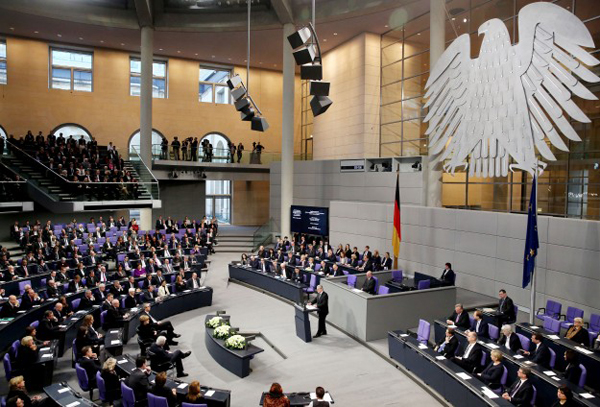This is evidenced by geopolitical developments around Turkey
Ambassador Extraordinary and Plenipotentiary of the Federal Republic of Germany, Matthias Kiesler, a day before informed that this fall possibly Bundestag will debate a resolution about the Armenian Genocide, however, he did not make any exact dates. Of course, the Ambassador also refrained from making clarifications on the adoption of the resolution, arguing that “a process is going on now, and I cannot know how it will end, we shall see.” Meanwhile, the Head of the Armenian Institute for International and Security Affairs Stepan Safaryan thinks that if the geopolitical developments and the West-Turkey relations will have such a process of development, then it is realistic that the Bundestag will adopt the resolution on the Armenian Genocide. Stepan Safaryan argues that yet everything continues to be dependent on the West-Turkey relations.
The political scientist, indeed, believes that not much is dependent on the Ambassador as Bundestag is a democratic system, and the elections here are independent. According to the political scientist, the adoption of the resolution is not only a matter of the Armenian Genocide, and it has never be a factor, based on which such decisions are made in various parliaments. Mr. Sagaryan illustrated the example of the French Parliament, where the country needed it for a threshold related to Turkey’s EU membership. And it is not the case that France did it only as Armenia’s friendly country. As for Germany, the political scientist said that this country has no problem of talking openly about the history.
To our question that in this case, what impedes Germany to recognize the Armenian Genocide, Mr. Safaryan replied, “Mostly the relations with Turkey impedes Germany. But if the dynamics go in this way, then greater is the likelihood that the Bundestag will recognize the Armenian Genocide.”
Read also
To our observation that maybe the resolution was just a gesture by Germany connected with the centenary of the Armenian Genocide, Mr. Safaryan replied, “Generally, the big powers like to be sensitive towards friendly countries and do it on occasions. Germany is a rising country and German authorities have submitted quite an ambitious applications, both in terms of being a leading power in Europe and sharing the responsibility in the world. Germany has submitted a leadership application both to influence on Caucasus issues and in terms of relations with Turkey. And indeed, the issue of the Armenian Genocide is an important factor for them.” According to Mr. Safaryan, currently Turkey’s politics creates serious danger and threats for Europe, and naturally, it cannot be forgotten, consequently, there is a question of keeping Turkey within the frames.
We reminded the economic factor that Turkey is a big market for Germany, Mr. Safaryan replied, “The economic factor has always been important for Germany. Eventually, Turkey is one of the world’s 20th largest economies.” To our question as to why these factors should impede Germany to adopt the resolution on the Armenian Genocide, Mr. Safaryan mentioned, “When political and security issues become dominant, Europe in many cases can sacrifice its economic interests, we see it in the case of Russia.” To the question of what validity this resolution will have and whether it will imply responsibility and compensation matter, the political scientist replied, “In this situation, we shall expect only recognition, eventually, Germany is a country of the “Great Eight”, one of the most powerful countries, a leading country in Europe, and only the issue of recognition already has a big value.”
Tatev HARUTYUNYAN, “Aravot” daily






















































